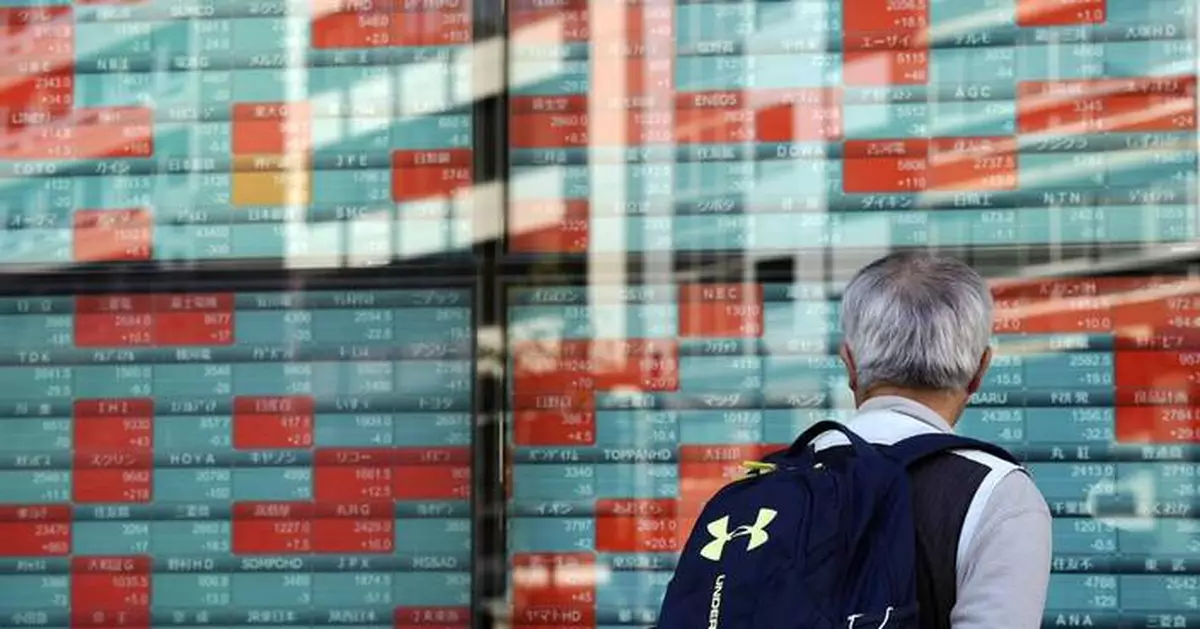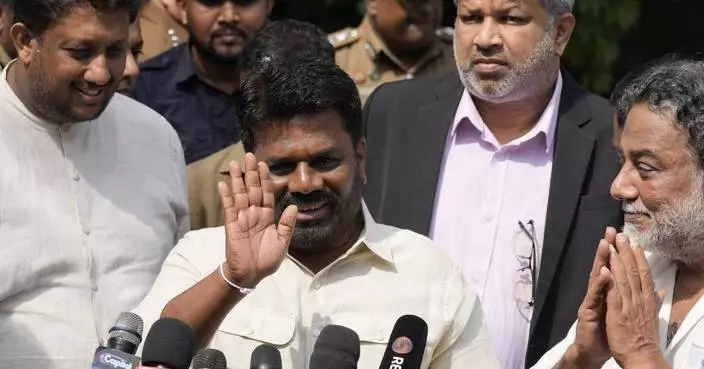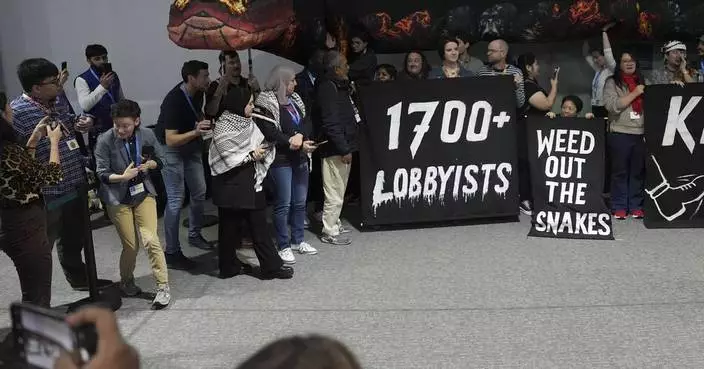HONG KONG (AP) — Asian stocks were mostly higher on Friday after U.S. stocks slipped as the market’s big rally following Trump's election victory cooled further.
U.S. futures and oil prices were lower.
In Tokyo, the Nikkei 225 index gained 0.3% to 38,642.91. The yen has been weakening against the U.S. dollar, boosting share prices for exporter like Nissan Motor Co., whose shares jumped 4.5% on Friday.
Japan’s economy grew at a 0.9% annual pace in the July-September quarter, higher than the 0.5% increase in the previous quarter, even as the Bank of Japan raised its key interest rate to 0.25% from 0.1% in July. The BOJ said during its October meeting that it plans to continue increasing rates, with a potential target of 1% in the second half of the next fiscal year, which begins in April, if economic activity and prices develop as expected.
The Hang Seng in Hong Kong added 0.1% to 19,454.41 and the Shanghai Composite index dropped 1.5% to 3,330.73 after a report from the National Bureau of Statistics on Friday showed the nation’s retail sales rose 4.8% year-on-year in October, beating forecasts. But industrial output slowed from the previous month and improvements in the property industry were marginal.
Australia’s S&P/ASX 200 gained 0.7% to 8,285.20, while South Korea’s Kospi edged 0.1% lower, to 2,416.86.
On Thursday, the S&P 500 fell 0.6% to 5,949.17, though it’s still near its all-time high set on Monday. The Dow Jones Industrial Average dropped 0.5% to 43,750.86, and the Nasdaq composite sank 0.6% to 19,107.65.
Some of the stocks that got the biggest bump from Trump’s election lost momentum. Tesla fell 5.8% for just its second loss since Election Day. It’s run by Elon Musk, who has become a close Trump ally.
Smaller stocks also fell harder than the rest of the market, and the Russell 2000 index of small stocks lost 1.4%. It’s a turnaround from the election’s immediate aftermath, when the thought was that an “America First” president would benefit domestically focused companies more than big multinationals that could be hurt by tariffs and trade wars.
Stocks also felt the effects of swinging yields in the bond market following the latest hotter-than-expected economic reports and comments from Federal Reserve Chair Jerome Powell. The Fed just cut its main interest rate earlier this month for the second time this year to ease the pressure on the economy, and investors are eager for more.
But short-term yields climbed after Powell said, “The economy is not sending any signals that we need to be in a hurry to lower rates. The strength we are currently seeing in the economy gives us the ability to approach our decisions carefully.”
The two-year Treasury yield, which closely tracks expectations for Fed action, rose to 4.35% from 4.28% late Wednesday.
Earlier Thursday, it had wavered after a report showed prices paid at the U.S. wholesale level were 2.4% higher in October from a year earlier. That was an acceleration from September’s 1.9% wholesale inflation rate and a worse jump than economists expected.
A separate report, meanwhile, suggested the U.S. job market remains solid. Fewer U.S. workers applied for unemployment benefits last week in the latest signal that layoffs aren’t taking off.
The yield on the 10-year Treasury also swiveled up and down before settling at 4.45%.
In other dealings, U.S. benchmark crude oil lost 86 cents to $67.84 per barrel in electronic trading on the New York Mercantile Exchange.
Brent crude, the international standard, gave up 88 cents to $71.68 per barrel.
The dollar fell to 156.16 Japanese yen from 156.23 yen. The euro edged up to $1.0556 from $1.0534.
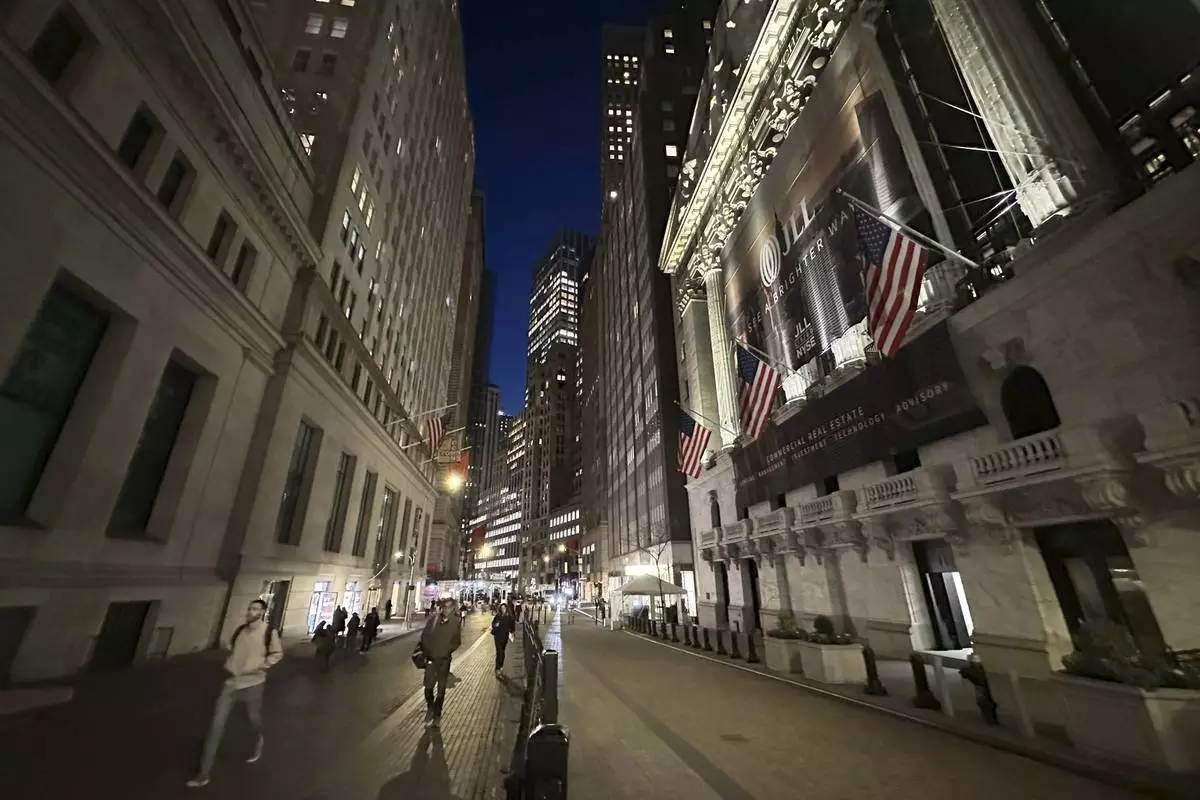
People pass the New York Stock Exchange, right, on Wednesday, Nov. 13, 2024, in New York. (AP Photo/Peter Morgan)

FILE - Currency traders work at the foreign exchange dealing room of the KEB Hana Bank headquarters in Seoul, South Korea, Tuesday, Nov. 12, 2024. (AP Photo/Ahn Young-joon, File)
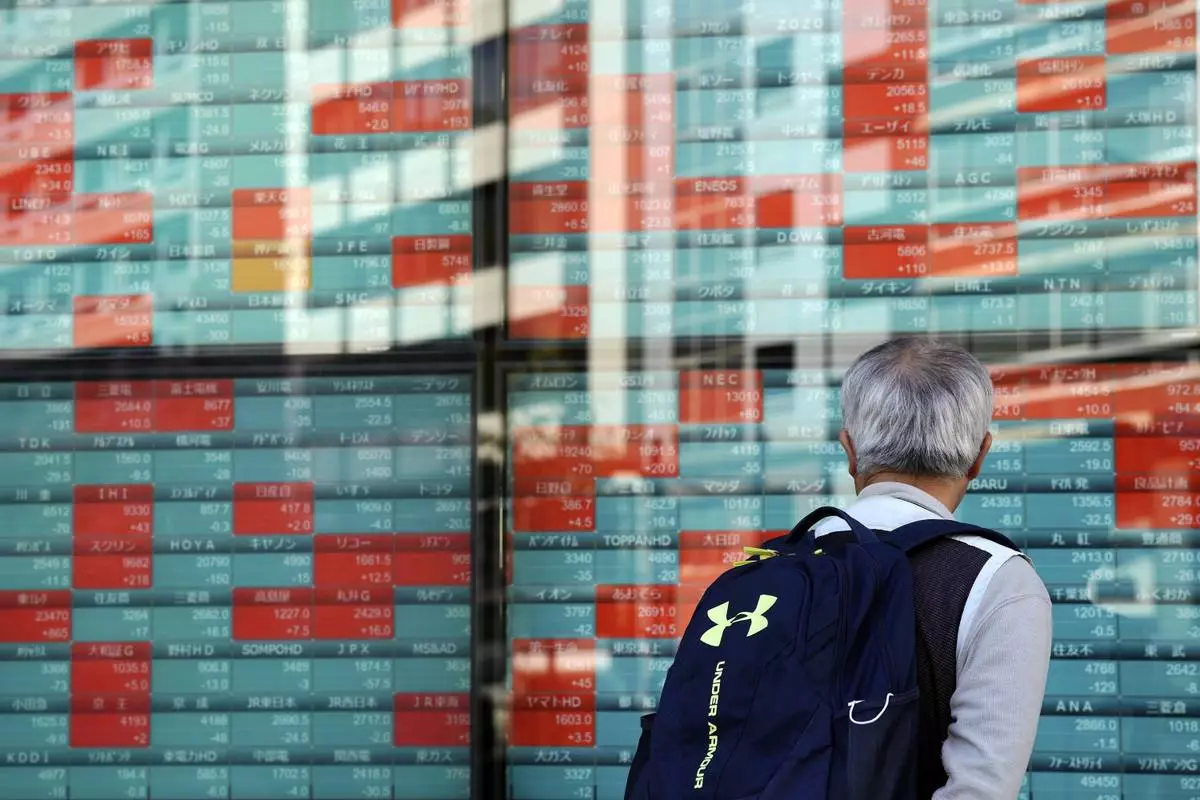
FILE - A person looks at an electronic stock board showing Japan's Nikkei index at a securities firm Wednesday, Nov. 13, 2024, in Tokyo. (AP Photo/Eugene Hoshiko, File)
SEOUL, South Korea (AP) — South Korean opposition leader Lee Jae-myung was convicted of violating election law and sentenced to a suspended prison term Friday by a court that ruled he made false statements while denying corruption allegations during a presidential campaign.
If it stands, the ruling could significantly shake up the country’s politics by potentially unseating Lee as a lawmaker and denying him a shot at running for president in the next election. But Lee, who faces three other trials over corruption and other criminal charges, is expected to challenge any guilty verdict and it remains unclear whether the Supreme Court would decide on any of the cases before the presidential vote in March 2027.
Lee told reporters that he plans to appeal Friday's verdict at the Seoul Central District Court, which gave him a sentence of one year in prison, suspended for two years. Under South Korean law, Lee would lose his legislative seat and be barred from running in elections for five years if he receives either a penalty exceeding a 1 million won ($750) fine for election law violations or any prison sentence for other crimes.
“There are still two more courts left in the real world, and the courts of public opinion and history are eternal,” he said, apparently referring to plans to take the case to the Supreme Court. “This is a conclusion that's impossible to accept.”
Lee, a firebrand liberal who narrowly lost the 2022 election to conservative President Yoon Suk Yeol, had steadfastly denied wrongdoing.
The ruling at the Seoul Central District Court drew intense media coverage and seemingly thousands of protesters. Surrounded by police lines, Lee’s supporters and critics occupied separate streets near the court, shouting opposing slogans and holding signs that said “Lee Jae-myung is innocent” and “Arrest Lee Jae-myung.” There were no immediate reports of major clashes.
Prosecutors indicted Lee in 2022 over charges that he made false claims related to two controversial development projects in the city of Seongnam, where he was mayor from 2010 to 2018, while campaigning as the presidential candidate for the Democratic Party.
One of the comments cited by prosecutors is related to suspicions that Seongnam city in 2015 changed the land-use designation to allow a housing project on a site previously preserved as green space due to lobbying by private developers.
Lee said during a parliamentary hearing in October 2021 that the city was instead “coerced” by the national government to make the change to the site in the district of Baekhyeon-dong. Prosecutors say there’s no evidence to back Lee’s claim, which has been denied by the Ministry of Land, Infrastructure and Transport.
Prosecutors also cited a TV interview Lee gave in December 2021, when he said he didn’t know a senior official at Seongnam city’s urban development arm during his time as mayor. Lee spoke a day after the official was found dead amid an investigation into a property development project in the district of Daejang-dong, which reaped huge profits for a small asset management firm and its affiliates and raised suspicions about possible corrupt links between them, city officials and politicians.
Prosecutors argued that Lee was lying to the public to distance himself from the controversies and improve his chances of winning the election. They had sought a two-year prison sentence for him.
The court found Lee guilty over the comments related to the Baekhyeon-dong project, saying it was clear that the city’s decision to change the site’s land-use designation wasn’t based on demands by the land ministry.
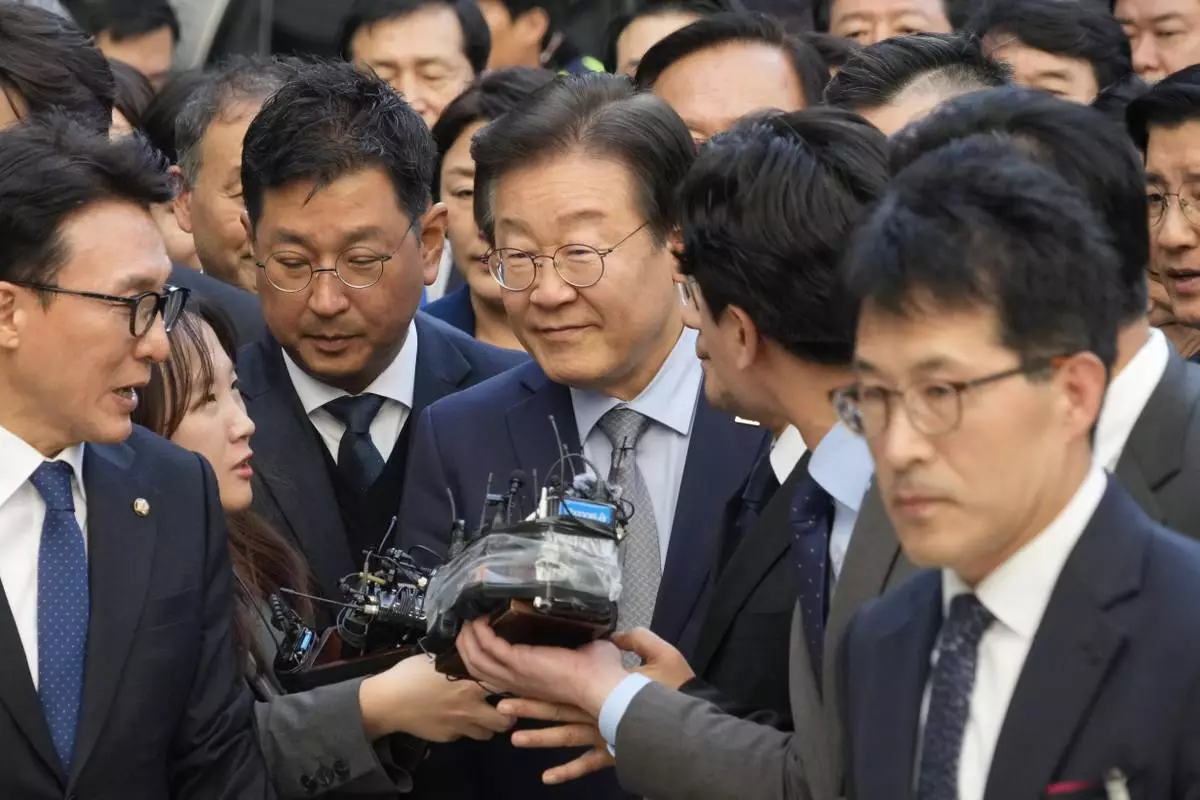
South Korea's main opposition Democratic Party leader Lee Jae-myung, center, arrives at the Seoul Central District Court in Seoul, South Korea, Friday, Nov. 15 2024. (AP Photo/Ahn Young-joon)
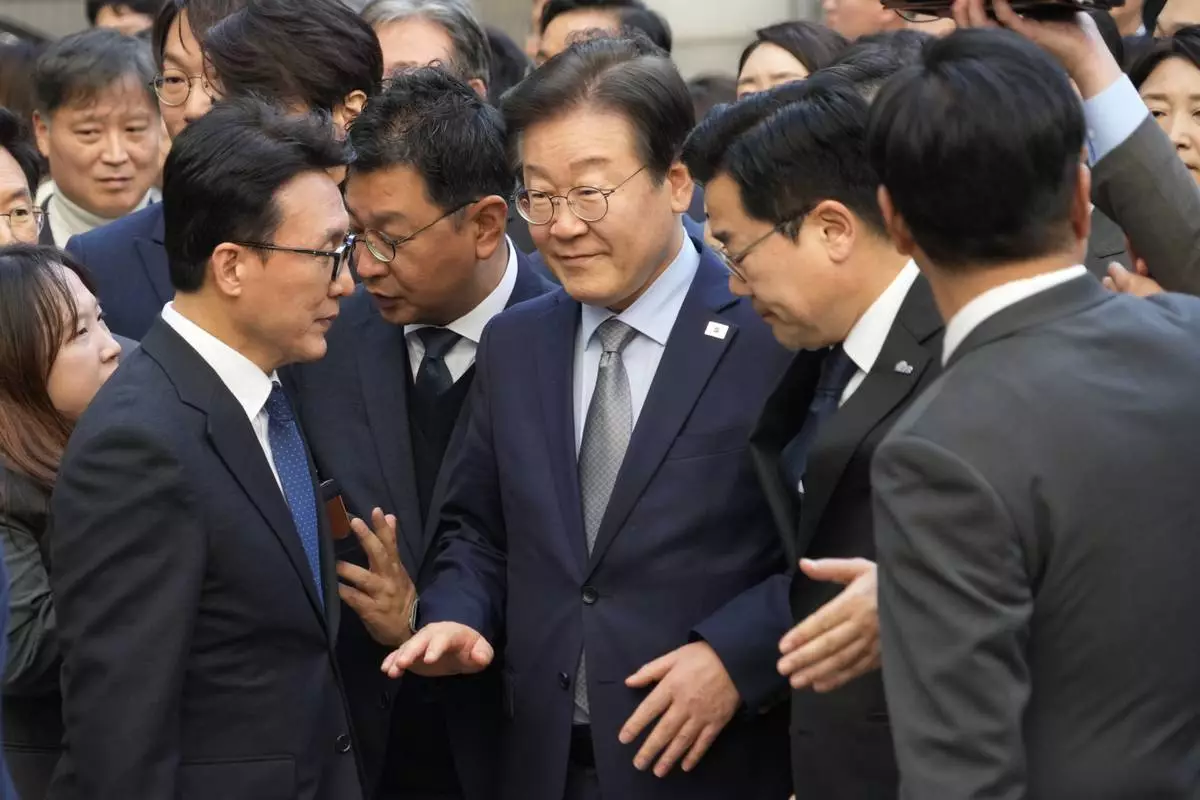
South Korea's main opposition Democratic Party leader Lee Jae-myung, center, arrives at the Seoul Central District Court in Seoul, South Korea, Friday, Nov. 15 2024. (AP Photo/Ahn Young-joon)
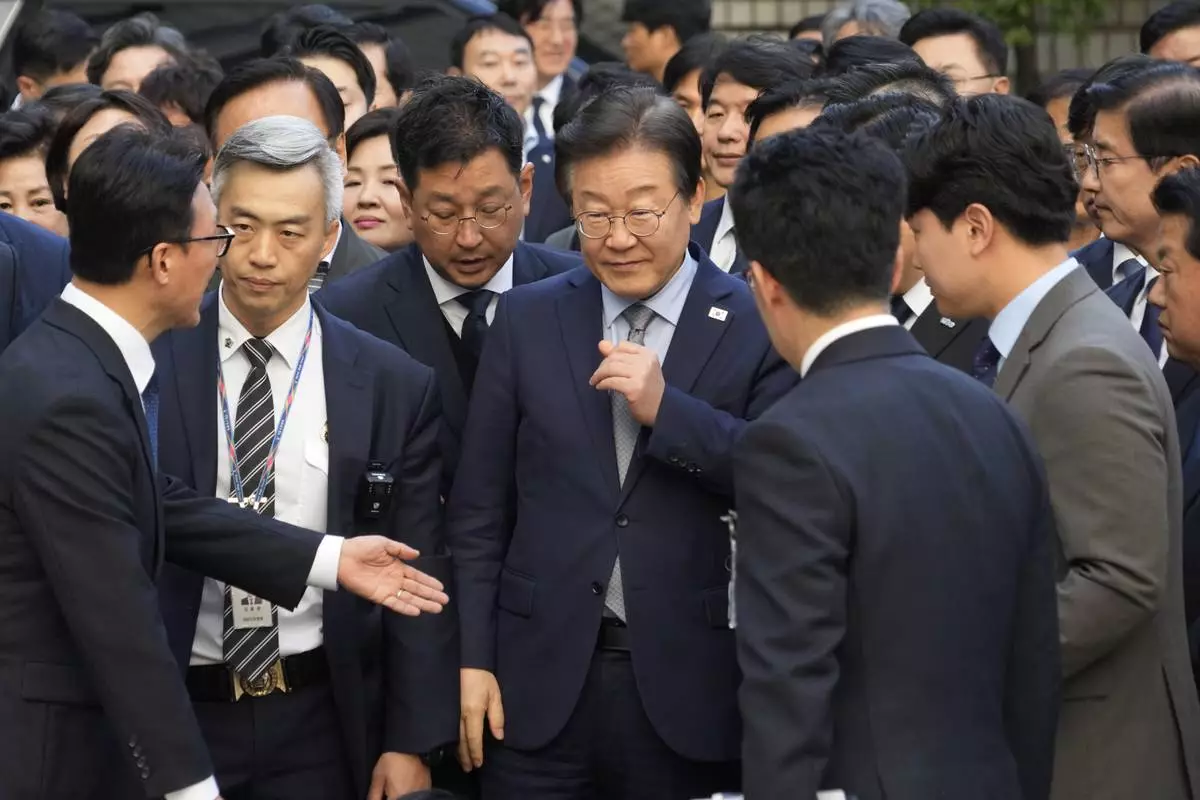
South Korea's main opposition Democratic Party leader Lee Jae-myung, center, arrives at the Seoul Central District Court in Seoul, South Korea, Friday, Nov. 15 2024. (AP Photo/Ahn Young-joon)
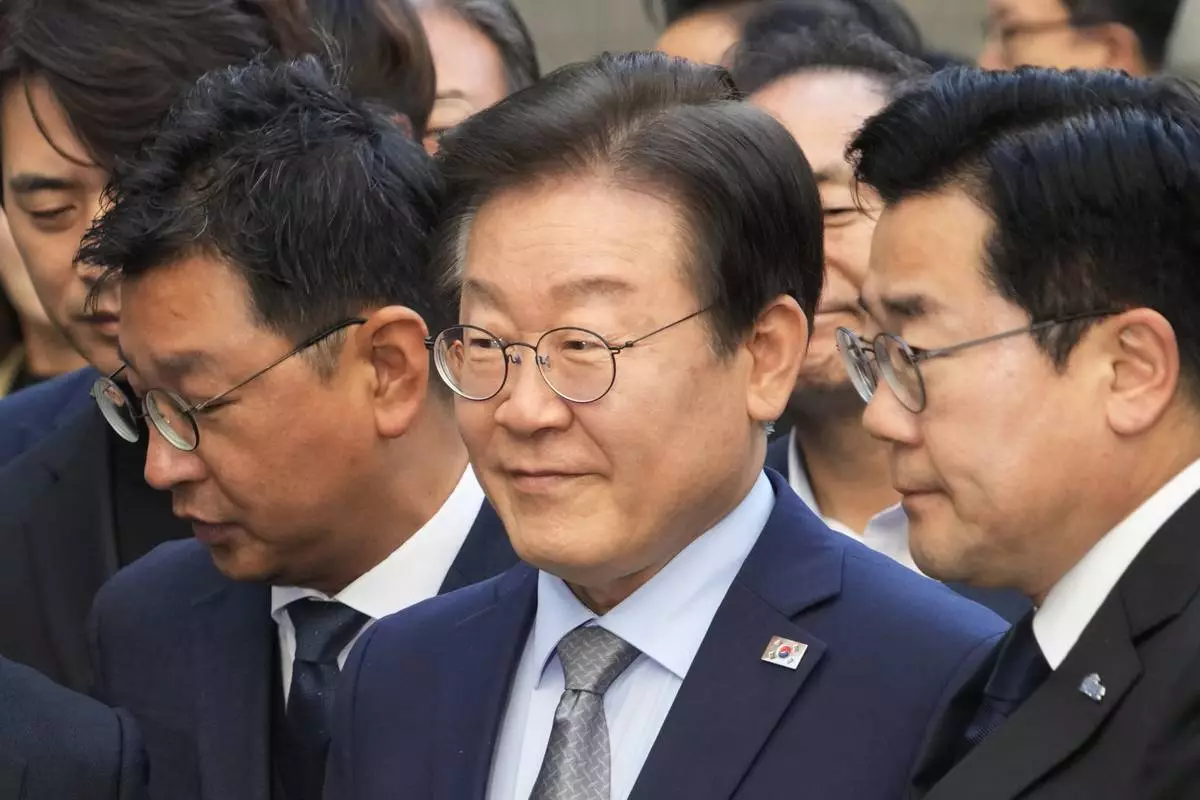
South Korea's main opposition Democratic Party leader Lee Jae-myung, center, arrives at the Seoul Central District Court in Seoul, South Korea, Friday, Nov. 15 2024. (AP Photo/Ahn Young-joon)





